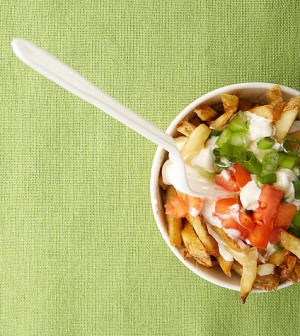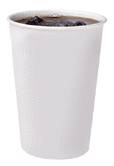- Double Mastectomy May Offer No Survival Benefit to Women With Breast Cancer
- Toxic Lead Found in Cinnamon Product, FDA Says
- Certain Abbott Blood Sugar Monitors May Give Incorrect Readings
- Athletes Can Expect High Ozone, Pollen Counts for Paris Olympics
- Fake Oxycontin Pills Widespread and Potentially Deadly: Report
- Shingles Vaccine Could Lower Dementia Risk
- Your Odds for Accidental Gun Death Rise Greatly in Certain States
- Kids From Poorer Families Less Likely to Survive Cancer
- Tough Workouts Won’t Trigger Cardiac Arrest in Folks With Long QT Syndrome
- At-Home Colon Cancer Test Can Save Lives
Carbonation May Help Artificially Sweetened Soda ‘Trick’ the Brain


FRIDAY, Sept. 20Did they get your diet soda order right at the drive-thru? It may not be so easy to tell.
According to a new study, carbonation in soft drinks alters the brain’s perception of sweetness and makes it difficult to distinguish between sugar and artificial sweeteners.
So the combination of carbonation and sugar may lead to increased sugar and food consumption since the brain perceives less sugar intake, the researchers said.
This may explain why eating disorders, metabolic diseases and obesity are common among diet soda drinkers, according to the study, which was published in the September issue of the journal Gastroenterology.
The researchers used functional MRI to monitor changes in brain activity when people drank carbonated beverages that contained sugar or artificial sweeteners.
“This study proves that the right combination of carbonation and artificial sweeteners can leave the sweet taste of diet drinks indistinguishable from normal drinks,” study author Rosario Cuomo, an associate professor of gastroenterology at Federico II University in Naples, Italy, said in a journal news release.
The confusion could also have an upside, Cuomo said.
“Tricking the brain about the type of sweet could be advantageous to weight loss — it facilitates the consumption of low-calorie drinks because their taste is perceived as pleasant as the sugary, calorie-laden drink,” she said.
Further research is needed to clarify the puzzling link between reduced calorie intake with diet drinks and higher rates of obesity and metabolic diseases.
More information
The U.S. Department of Agriculture has more about calories.
Source: HealthDay
Copyright © 2024 HealthDay. All rights reserved.










